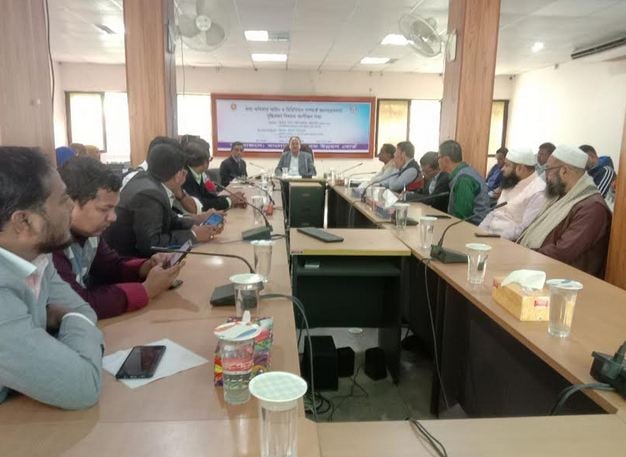
RAJSHAHI, Dec 4, 2024 (BSS) - Traditional silk sector to be revived after the best uses of existing natural resources with collective efforts of all the stakeholders.
Since the immemorial time, Rajshahi has been famous for silk but its legacy was on the verge of waning for the last couple of decades due to various reasons.
Many rural people had got the path of improving their living standard through boosting local silk yarn production.
Most of the villagers were seen farming silkworm sericulture side by side with their regular household activities in Bagha and Charghat upazilas in Rajshahi and Bholahat upazila in Chapainawabganj district.
But, the glorious situation can be revived after the best use of existing natural resources. There are enormous scopes of generating employment opportunities along with improving living and livelihood conditions of the marginalized and landless people, particularly women, through engaging them in sericulture.
Anwar Hossain, Director General of Bangladesh Silk Development Board (BSDB), made the observation while addressing a stakeholder workshop at the BSDB conference hall here today as chief guest.
BSDB organized the workshop titled "Enhancing Mass-participation on Right to Information (RTI) and its rules and regulations" with participation of teachers, religious readers, BSDB officials, silk farmers and realer.
Joint Secretary of the Ministry of Textile and Jute Raina Ahmed, Programmer Aminul Islam and BSDB Directors Emdadul Bari and Nasima Khatun addressed the workshop as resource persons disseminating their expertise on the issue.
Director General Anwar Hossain said they are intended to boost the capacity of the targeted people through imparting them with training in different stages of sericulture.
In addition to the modernization of the sericulture nurseries, initiative has been taken to boost the production of mulberry plants and cocoons in Ishwardi, Rangpur, Comilla, Konabari and Bogura nursery centres.
They are also planning to meet the country's demand by enhancing the production of silk cocoon and raw silk. Initiatives have been taken to expand sericulture through farming methods aimed at increasing silk production on a commercial basis.
At present, there are 2,131 mulberry farmers, 1,639 cocoon farmers and 13.14 lakh mulberry plants in 468 blocks and 30 ideal villages.
"We are extending financial support to all the grassroots farmers through 59 centres," said DG Anwar Hossain, adding that there are also arrangements of extending support to those engaged in silk cocoon, yarn and mulberry farming and silk industries besides marketing of silk products.
They are encouraging the farmers towards mulberry farming as the main crop with the ultimate goal of boosting silk production. Currently, mulberry plants are being cultivated on homesteads and roadside vacant places.
Around 23 ideal sericulture villages were established in the potential areas as a model to improve the capacity of small and marginal farmers to establish high-yielding mulberry gardens and produce superior-quality silk cocoons.
The multidisciplinary activities provide unique job opportunities to the marginal farmers, landless poor, rural and contribute a lot to poverty reduction, he added.